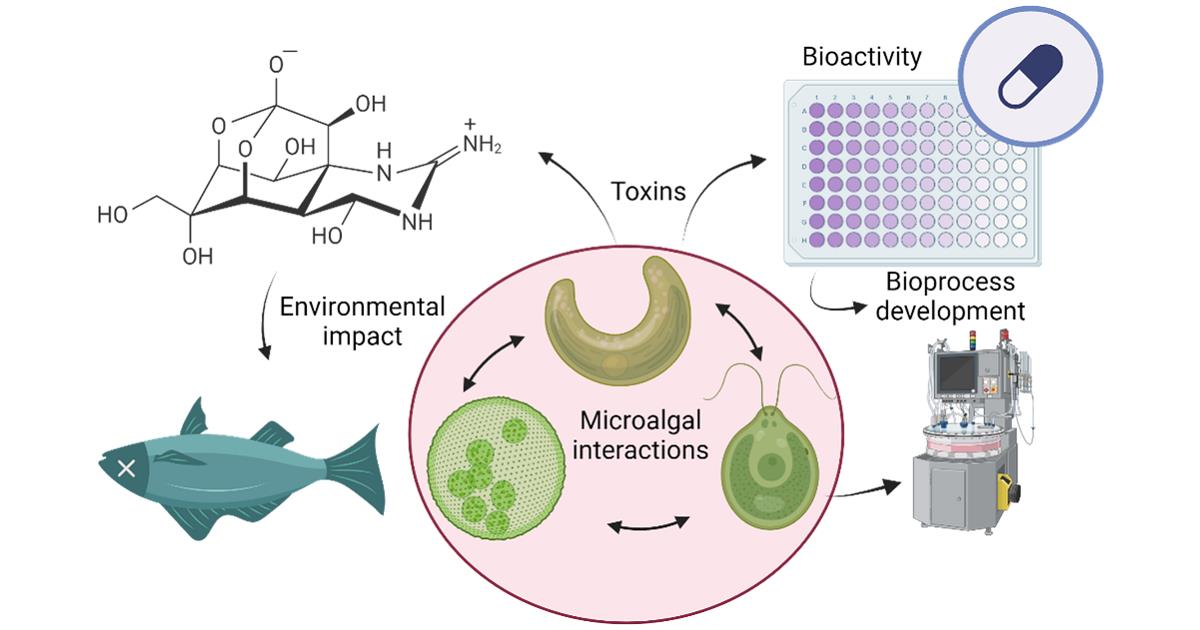Marine Biotoxins: Bioactivities, Identification, and Potential Bioprocesses
A special issue of Toxins (ISSN 2072-6651). This special issue belongs to the section "Marine and Freshwater Toxins".
Deadline for manuscript submissions: 20 August 2025 | Viewed by 74

Special Issue Editor
Interests: biochemical engineering; bioprocess; technology; microalgae; marine toxins; marine ecology; cell lysis; chemical engineering; industrial biotechnology; photobioreactors
Special Issues, Collections and Topics in MDPI journals
Special Issue Information
Dear Colleagues,
Marine biotoxins, produced by various marine organisms such as dinoflagellates, cyanobacteria, and certain algae, represent a diverse group of bioactive compounds. These biotoxins play significant roles in marine ecosystems, influencing predator–prey dynamics and species interactions. At the same time, their potential impacts on seafood safety and human health make them of paramount importance for environmental monitoring and regulatory frameworks.
This Special Issue aims to bring together the latest research on bioactivities, identification, and potential bioprocesses involving marine biotoxins. While traditionally studied for their harmful effects, there is growing interest in harnessing the unique properties of these toxins for beneficial applications, including pharmaceuticals, biopesticides, and novel bioactive compounds for biotechnology. However, challenges remain in the scalable production and isolation of marine biotoxins, as well as in the development of reliable detection methods.
We invite contributions that explore a wide range of topics, including, but not limited to, the following:
- The biological activities and mechanisms of action of marine biotoxins.
- Advances in identification, quantification, and analytical techniques.
- Novel bioprocessing approaches for the cultivation and extraction of marine biotoxins.
- Potential applications of marine biotoxins in medicine, agriculture, and industry.
- The ecological roles and environmental impacts of these bioactive compounds.
This Special Issue is designed to foster collaboration between researchers in marine biology, biotechnology, chemistry, and environmental sciences, offering a multidisciplinary platform to advance our understanding of marine biotoxins and their potential for future biotechnological innovations.
Prof. Dr. Juan Jose Gallardo Rodriguez
Guest Editor
Manuscript Submission Information
Manuscripts should be submitted online at www.mdpi.com by registering and logging in to this website. Once you are registered, click here to go to the submission form. Manuscripts can be submitted until the deadline. All submissions that pass pre-check are peer-reviewed. Accepted papers will be published continuously in the journal (as soon as accepted) and will be listed together on the special issue website. Research articles, review articles as well as short communications are invited. For planned papers, a title and short abstract (about 100 words) can be sent to the Editorial Office for announcement on this website.
Submitted manuscripts should not have been published previously, nor be under consideration for publication elsewhere (except conference proceedings papers). All manuscripts are thoroughly refereed through a double-blind peer-review process. A guide for authors and other relevant information for submission of manuscripts is available on the Instructions for Authors page. Toxins is an international peer-reviewed open access monthly journal published by MDPI.
Please visit the Instructions for Authors page before submitting a manuscript. The Article Processing Charge (APC) for publication in this open access journal is 2700 CHF (Swiss Francs). Submitted papers should be well formatted and use good English. Authors may use MDPI's English editing service prior to publication or during author revisions.
Keywords
- marine toxins
- dinoflagellates
- harmful algae
- bioprocesses
- bioaccumulation
- allelopathy
Benefits of Publishing in a Special Issue
- Ease of navigation: Grouping papers by topic helps scholars navigate broad scope journals more efficiently.
- Greater discoverability: Special Issues support the reach and impact of scientific research. Articles in Special Issues are more discoverable and cited more frequently.
- Expansion of research network: Special Issues facilitate connections among authors, fostering scientific collaborations.
- External promotion: Articles in Special Issues are often promoted through the journal's social media, increasing their visibility.
- e-Book format: Special Issues with more than 10 articles can be published as dedicated e-books, ensuring wide and rapid dissemination.
Further information on MDPI's Special Issue polices can be found here.






